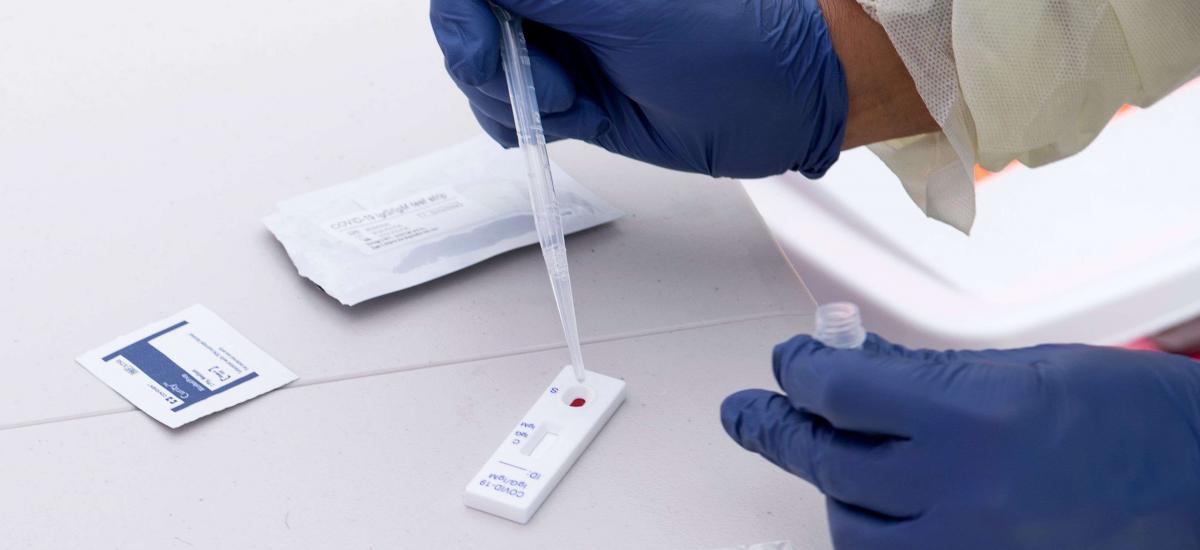As the ongoing coronavirus pandemic continues to grow, researchers are leaving no stone unturned when it comes to developing rapid tests, drugs, and vaccines.
Now, scientists from UNC School of Medicine developed a new kind of antibody test, a simplified experimental assay, which could bolster thousands of blood samples at labs that lack resources of commercial labs and academic medical centers.
The scientists developed a blood test to detect SARS-CoV-2 antibodies that target a unique piece of the virus’ spike protein, which is called a receptor-binding domain (RBD).
The antibody test can measure the levels of the RBD that the researchers found similar to the levels of the all-important neutralizing antibodies that offer protection to the body.
Co-senior author Prof. Aravinda de Silva of the UNC Institute for Global Health and Infectious Diseases said, “Our assay is extremely specific for antibodies to the virus that causes COVID-19, which is not the case for some currently available antibody tests.”
“Our results strongly support the use of RBD-based antibody assays for population-level surveillance and as a correlate of the neutralizing antibody levels in people who have recovered from SARS-CoV-2 infections,” he added.
First and co-senior author Prem Lakshmanane at UNC said, “We are now further streamlining our test into an inexpensive assay so that instead of the test taking four to five hours to complete, our assay could be completed in about 70 minutes without compromising quality.”
“We observed a robust correlation between levels of RBD-binding antibodies and SARS-CoV-2 neutralizing antibodies in individual samples,” Lakshmanane added. “This means our assay not only identifies people exposed to SARS-CoV-2, but it can also be used to predict levels of neutralizing antibodies and to identify potential donors for plasma therapy.”
Researchers around the world have approved the UNC-Chapel Hill scientists for assistance with developing this new assay within their research laboratories to monitor people for COVID-19 infection.
“We don’t see our research as a means to replace commercial tests,” de Silva said.
“Commercial tests are critical, especially for making decisions about the clinical management of individual patients,” he added. “But it’s too early in the pandemic to know if the commercial assays are suitable for identifying people who experienced very mild or no disease after infection or if the assays tell us anything about protective immunity, as researchers are still learning about this virus.” de Silva continued, “It’s important for researchers to stay engaged, to monitor antibody responses and other biological details, and to fine tune assays to meet the different needs of individual patients, the public health community, and vaccine developers.”























